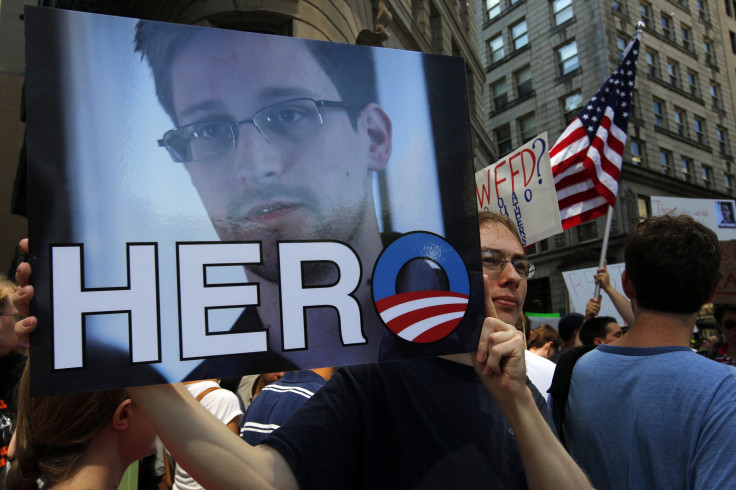Snowden: Survey Says Majority Of US Voters See NSA Leaker Edward Snowden As Whistle Blower, Not Traitor: Quinnipiac Poll

A majority of American voters say Edward Snowden is a whistle-blower rather than a traitor, according to a Quinnipiac University national poll released Wednesday.
In a significant change of attitudes, 55 percent of voters support Snowden's leaking of the NSA's methods versus 34 percent who do not. Respondents also said the government's anti-terrorism efforts go too far restricting civil liberties, by 45 percent to 40 percent. This represents a sharp reversal from a January 2010 poll that found that 63 percent of voters thought the government's anti-terror activities didn't go far enough to adequately protect the country, compared to 25 percent who did.
Some of the largest growth in those concerned about the threat to civil liberties is among men and Republicans, groups historically more likely to be supportive of proclaimed anti-terrorism efforts.
"The fact that there is little difference now along party lines about the overall anti-terrorism effort and civil liberties and about Snowden is in itself unusual in a country sharply divided along political lines about almost everything," said Peter Brown, assistant director of the Quinnipiac University Polling Institute in Connecticut. "Moreover, the verdict that Snowden is not a traitor goes against almost the unified view of the nation's political establishment."
However, while voters of almost every political party, gender, income level, education level and age group regard Snowden as a whistle-blower rather than a traitor, African-American voters were the only group to poll more evenly, with 43 percent calling him a traitor and 42 percent calling him a whistle-blower.
Voters on a whole support the National Security Agency phone-scanning program by 51 percent to 45 percent and also say that it "is necessary to keep Americans safe" by 54 percent to 40 percent. However, they also say that the program "is too much intrusion into Americans' personal privacy" by 53 percent to 44 percent.
"Americans' views on anti-terrorism efforts are complicated," said Brown. "They see the threat from terrorism as real and worth defending against, but they have a sense that their privacy is being invaded and they are not happy about it at all."
The Hamden, Conn.-based institution called land lines and cell phones of 2,014 registered voters in Pennsylvania, New York, New Jersey, Connecticut, Florida, Ohio, Virginia, Iowa and Colorado from June 28 to July 8.
© Copyright IBTimes 2024. All rights reserved.






















